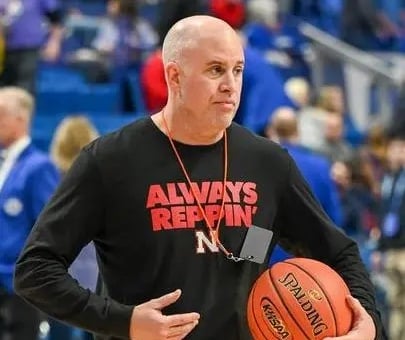A new breed of terrorists have sophisticated public relations campaigns complete with social media accounts. Recently, one group issued a call to action using a Twitter account asking their members to use the yellow pages to target military families and show up at their doors and slaughter them.
Military Spouses of Strength, an advocacy group for veterans and their families, had its Twitter account hacked and taken over by a terrorist group. The hackers made odd posts like, “I love Isis.” The Twitter account has been indefinitely shut down to protect the people who were following the group.
In October 2014 the Army Threat Integration Center issued warnings to Army post worldwide to be more vigilant about guarding against attacks by terrorist. “Soldiers, government civilians and family members are reminded to be vigilant of their surroundings and report suspicious activities to their respective military or local law enforcement.”
The terrorists already rob military families of their loved ones who have to be away to fight. Should we also allow them to control other elements of our lives?
They released a number of precautions specific to military families. The list of precautions included the usual: lock your doors, have increased exterior lighting, vary your routines, don’t open the door to strangers, etc. They also warned military families to be more cautious about social media accounts asking them not to post personal information such as phone numbers and addresses. They told families to remove all mention of military connections from their social media accounts. They recommended doing away with social media completely if possible.
However, social media for many military families is an important part of how they stay in touch with their loved ones when they are stationed far from home. The terrorists already rob military families of their loved ones who have to be away to fight. Should we also allow them to control other elements of our lives?
The happy medium is using common sense when you are online and telling your family and friends to do the same. I recently saw a post on social media from a soldier looking for a place for his dogs while he was deployed. His family thought they were doing him a favor by circulating the post. However, the post included the soldier’s name, current address, where his family lived, where he was deploying to, when he would be deploying, where he was going and when he would be back. Post like this jeopardize our soldiers’ safety and the safety of their families.
It is unlikely that a terrorist will show up at your door. However, this hasn’t stopped them from calling some military families and threatening to do just that. Several Kentucky military families have received phone calls from people identifying themselves as having connections to terrorist organizations and telling them they are coming for them.
Local law enforcement agencies around Northern Kentucky, that are paying attention, seem to be at a heightened sense of awareness. Law enforcement agencies in Northern Kentucky are focusing many of their resources on the heroin epidemic. New ties with local businesses have them wondering about the potential that heroin could be funding terrorism activities.
Josh Quinn from the Boone County Sheriff’s Department said they don’t have any issues with terrorist in Boone County. A week later an article came out about Christopher Lee Cornell, also known as Raheel Mahrus Ubaydah, a Muslim with ties to terrorist organizations, phoning the media from his Boone County Jail cell threatening to kill the president. Mr. Cornell/Ubaydah had been monitored for some time by other agencies for the comments he was making through social media.
Use common sense when using social media. … What may seem like a small detail to you could be an important piece of a bigger puzzle.
This was followed by several local websites being hacked by organizations claiming to have ties to terrorist groups.
In 2013 there were more than 70,000 Iraqi war refugees living in the United States. They got here by filling out immigration paper work and simple checking the “no” box when asked if they had been involved in terrorism. Many came across the Syrian border.
In May 2011 the FBI convicted two men in Bowling Green, Kentucky, who slipped through the cracks of this immigration wave. Thirty-year-old Waad Ramadan Alwan and 23-year-old Mohanad Shareef Hammadi were members of Al-Qaida who had a public storage unit full of weapons and bombs. Both men had been previously arrested for planting roadside bombs. Their finger prints were already in the Defense Department database. Yet, it wasn’t caught when biometric fingerprints were taken at the Syrian border. They lived in the United States for at least two years before they were caught.
The FBI searched through the remnants of 130 bombs with 14,000 fingerprint comparisons. A bomb recovered outside of Baja had a fingerprint on it that matched the men living in Kentucky. The FBI then set up a sting and caught the men enthusiastically preparing weapons for transport to kill American soldiers, even targeting some who lived here in the United States.
Today, there are unconfirmed reports of terrorist training camps popping up all over the United States including areas in Kentucky, such as Danville and Louisville. It is no surprise they would be in close proximity to college towns. The largest growing population of terrorist are young people in their twenties who are well educated and come from financially secure families.
House Intelligence Committee Chairman Mike Rogers, R-Michigan, gave a presentation last year where he said terrorist organizations are using social media “as a recruiting tool.” He said some estimates show the terror network is recruiting as many as 3,400 people per month because of their social media recruiting efforts.
It is difficult to track these terrorist organizations who are reported to be posting more than 90,000 times a day.
Use common sense when using social media. If someone calls you or contacts you in a threatening manner contact your local law enforcement to report the incident. What may seem like a small detail to you could be an important piece of a bigger puzzle.
Carrie D. Cox is host of The Military Mamas Radio Show, a talk radio program for veterans, active duty military and their families. She also works as the co-host of TWT-TV a veteran-owned small business. She grew up in Covington and graduated from Holmes High School. She moved away as a military spouse but returned several years ago and began writing and teaching. She has a doctorate and holds degrees in public relations, psychology, conflict management, neurolinguistics programming and forensic psychological profiling. Email: carriedcox@yahoo.com


















